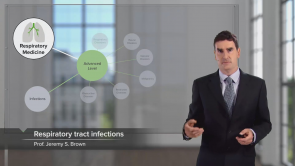Labor Market: Measures

Über den Vortrag
Der Vortrag „Labor Market: Measures“ von James DeNicco ist Bestandteil des Kurses „Principles of Macroeconomics (EN)“. Der Vortrag ist dabei in folgende Kapitel unterteilt:
- Labor Market: Measures
- Definitions
- Reasons for Unemployment
- Rates
- Frictional Unemployment
- Structural Unemployment
- Cyclical Unemployment & Natural Rate
- Alternative Measures
- Costs of Unemployment
- Social Costs
Quiz zum Vortrag
If there is an economy with 20 people of working age, 7 employed, 3 unemployed and 10 not in the labor force, then what is the unemployment rate and what is the participation rate?
- 30% and 50%.
- 50% and 70%.
- 70% and 30%.
- 30% and 70%.
What kind of unemployment occurs from a skills mismatch?
- Structural unemployment.
- Frictional unemployment.
- Cyclical unemployment.
- Marginal unemployment.
Who most closely fits this description: They are not in the Labor Force because they haven’t searched for a job in the last 4 weeks because they believe no jobs are available for them or there are none for which they would qualify. However, they want to work and have looked in the past 12 months.
- Discouraged Worker.
- Marginally Attached Worker.
- Involuntary Part Time Worker.
- Employed Worker
What is correct when we talk about the costs of unemployment?
- Long-term unemployment means you have less income, your skills go away and it gets harder to find a new job.
- Unemployment can cause social and political tension.
- There is no connection between crime and high unemployment.
- Unemployment leads only to monetary problems.
- Unemployment means you will loose your house.
Kundenrezensionen
5,0 von 5 Sternen
| 5 Sterne |
|
5 |
| 4 Sterne |
|
0 |
| 3 Sterne |
|
0 |
| 2 Sterne |
|
0 |
| 1 Stern |
|
0 |




